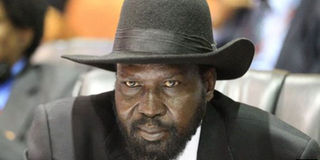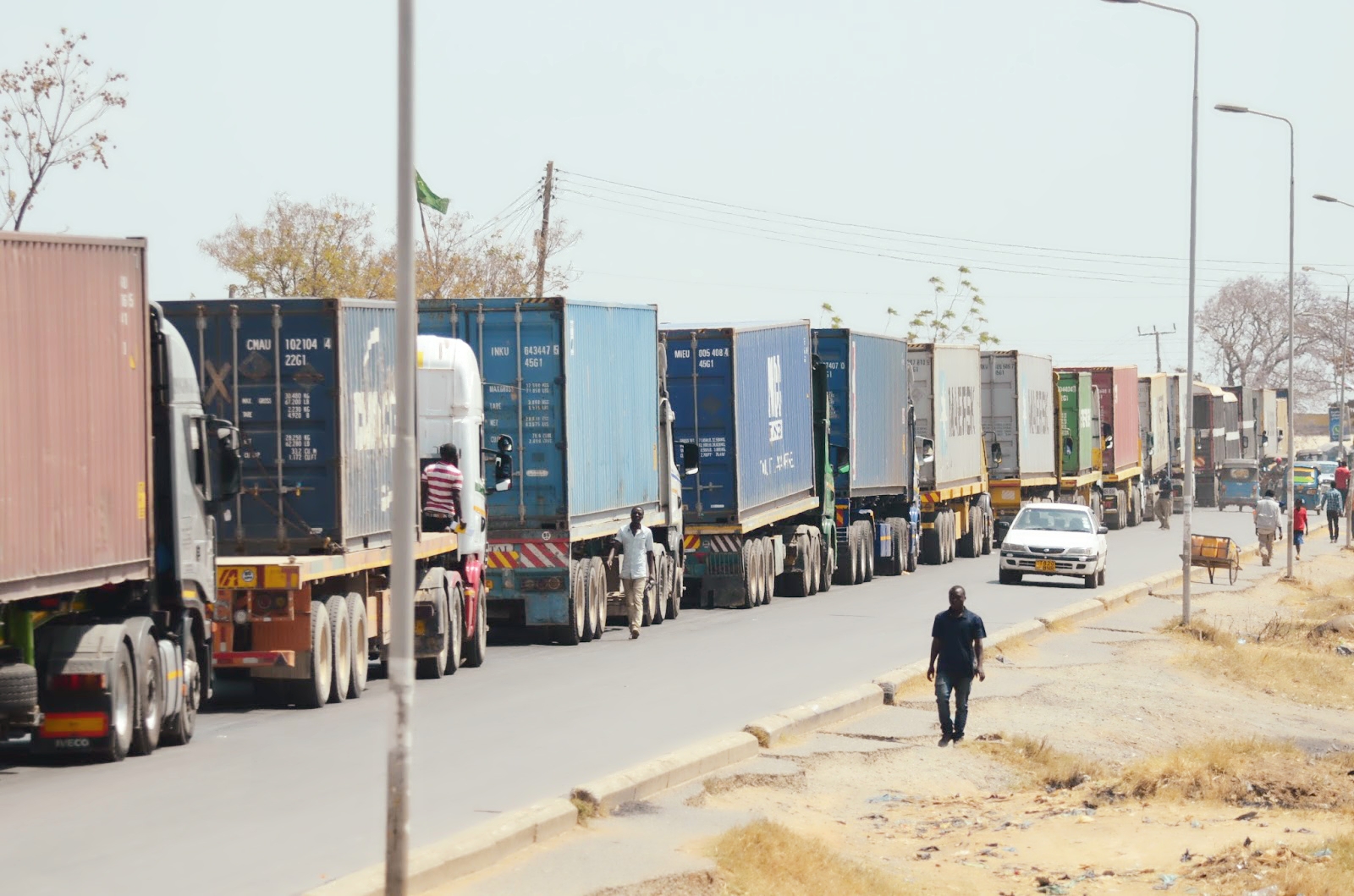Freeze assets of these warlords to rescue South Sudan

South Sudan President, Salva Kiir.
What you need to know:
- These officials often met in the lobbies of posh hotels in Nairobi, where decisions about Somalia were made and business deals cut.
During the tenure of Somalia’s Transitional Federal Government from 2004 till 2012, Nairobi was jokingly referred to as “the capital of Somalia” because most Somali government officials spent more time in the Kenyan capital than in Mogadishu.
These officials often met in the lobbies of posh hotels in Nairobi, where decisions about Somalia were made and business deals cut.
It is believed that corrupt Somali officials and warlords laundered their ill-gotten wealth by buying property in Nairobi.
Until African Union forces liberated sections of Mogadishu in 2011, few Somali presidents dared to move into Villa Somalia except maybe for a few days at a time; they spent more time in their Nairobi homes. Nairobi thus remained the nerve centre of the Somali government.
Because much of Somalia is considered a no-go zone by the United Nations, most of the UN’s Somalia operations are based in Nairobi. Supplies for these operations are procured in Kenya.
Kenyan companies have thus benefited financially from the conflict in Somalia. It is no wonder that Kenya has been rated as among the top 10 suppliers of goods and services to the UN.
Apparently Kenyan companies and individuals have also been benefiting from the conflict in South Sudan because Nairobi is the preferred residence of many South Sudanese warlords. According to a damning investigative report titled War Crimes Shouldn’t Pay, published by The Sentry, (foreword by George Clooney and John Prendergast), both President Salva Kiir and his former deputy Riek Machar and top military officers in the Sudanese People’s Liberation Army and South Sudan’s armed forces own or rent luxurious homes in Nairobi and have accounts in Kenyan banks through which they have laundered millions of dollars.
Kenya’s property market and banking sector thus appear to have been big beneficiaries of South Sudan’s conflict.
The report confirms that the rivalry between Kiir and Machar is not so much about ethnic divisions as about competition over the country’s vast natural resources.
South Sudan’s leaders are enjoying first-class lifestyles in Nairobi while at least half of South Sudan’s population faces starvation and more than two million people are internally displaced. It is believed that Kiir and Machar’s armies could be responsible for the deaths of up to 300,000 people.
For years, South Sudan was the darling of the United States, which mistakenly believed that its war of secession with the north was about Christianity, not greed.
Western countries have provided billions of dollars of aid to South Sudan. Yet it is clear to all and sundry that Kiir and Machar and their generals have blood on their hands and are responsible for crimes against humanity that should ideally be referred to the International Criminal Court.
One way of ending the rivalry between these two men could be to freeze their assets in Kenya until they bring a semblance of normalcy to their bruised and battered country.
Talking about power and greed, an American friend who lives in New York summed up for me in a hilarious email how the madness of the Iraq war and the prospect of a Donald Trump presidency have impacted her:
“Did I tell you that for a while in 2002, after talking to too many clueless billionaires, and again in 2003, when the US invaded Iraq, I could only think in rhyme for whole weeks at a time?...
“Then, perhaps while contemplating that I really had a lot more of a fight to pick with George W. Bush, Dick Cheney et al and others making decisions in Washington DC, I decided I should be a lawyer.
“But I wrote my law school application essay in rhyming verse that was basically less of an explanation of why I should be admitted to law school and more of a pitch for a reality TV show called Who Wants to be a Politician? I was not exactly surprised when I was rejected by 3 of 3 law schools.
“This is all background to explain that now, 14 years later, I find myself an unwilling participant in the worst reality TV show ever, with the scariest individual to emerge from the vapid wasteland of US reality TV poised to take over my country and end the world.”
During the tenure of Somalia’s Transitional Federal Government from 2004 till 2012, Nairobi was jokingly referred to as “the capital of Somalia” because most Somali government officials spent more time in the Kenyan capital than in Mogadishu.
These officials often met in the lobbies of posh hotels in Nairobi, where decisions about Somalia were made and business deals cut.
It is believed that corrupt Somali officials and warlords laundered their ill-gotten wealth by buying property in Nairobi.
Until African Union forces liberated sections of Mogadishu in 2011, few Somali presidents dared to move into Villa Somalia except maybe for a few days at a time; they spent more time in their Nairobi homes. Nairobi thus remained the nerve centre of the Somali government.
Because much of Somalia is considered a no-go zone by the United Nations, most of the UN’s Somalia operations are based in Nairobi. Supplies for these operations are procured in Kenya.
Kenyan companies have thus benefited financially from the conflict in Somalia. It is no wonder that Kenya has been rated as among the top 10 suppliers of goods and services to the UN.
Apparently Kenyan companies and individuals have also been benefiting from the conflict in South Sudan because Nairobi is the preferred residence of many South Sudanese warlords. According to a damning investigative report titled War Crimes Shouldn’t Pay, published by The Sentry, (foreword by George Clooney and John Prendergast), both President Salva Kiir and his former deputy Riek Machar and top military officers in the Sudanese People’s Liberation Army and South Sudan’s armed forces own or rent luxurious homes in Nairobi and have accounts in Kenyan banks through which they have laundered millions of dollars.
Kenya’s property market and banking sector thus appear to have been big beneficiaries of South Sudan’s conflict.
The report confirms that the rivalry between Kiir and Machar is not so much about ethnic divisions as about competition over the country’s vast natural resources.
South Sudan’s leaders are enjoying first-class lifestyles in Nairobi while at least half of South Sudan’s population faces starvation and more than two million people are internally displaced. It is believed that Kiir and Machar’s armies could be responsible for the deaths of up to 300,000 people.
For years, South Sudan was the darling of the United States, which mistakenly believed that its war of secession with the north was about Christianity, not greed.
Western countries have provided billions of dollars of aid to South Sudan. Yet it is clear to all and sundry that Kiir and Machar and their generals have blood on their hands and are responsible for crimes against humanity that should ideally be referred to the International Criminal Court.
One way of ending the rivalry between these two men could be to freeze their assets in Kenya until they bring a semblance of normalcy to their bruised and battered country.
Talking about power and greed, an American friend who lives in New York summed up for me in a hilarious email how the madness of the Iraq war and the prospect of a Donald Trump presidency have impacted her:
“Did I tell you that for a while in 2002, after talking to too many clueless billionaires, and again in 2003, when the US invaded Iraq, I could only think in rhyme for whole weeks at a time?...
“Then, perhaps while contemplating that I really had a lot more of a fight to pick with George W. Bush, Dick Cheney et al and others making decisions in Washington DC, I decided I should be a lawyer.
“But I wrote my law school application essay in rhyming verse that was basically less of an explanation of why I should be admitted to law school and more of a pitch for a reality TV show called Who Wants to be a Politician? I was not exactly surprised when I was rejected by 3 of 3 law schools.
“This is all background to explain that now, 14 years later, I find myself an unwilling participant in the worst reality TV show ever, with the scariest individual to emerge from the vapid wasteland of US reality TV poised to take over my country and end the world.”
Rasna Warah is a writer and editor with more than 20 years of experience. Email: [email protected]




